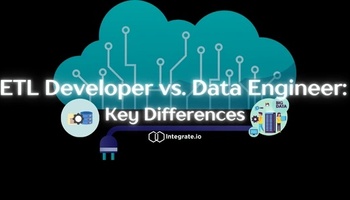Big data security describes a range of techniques and tools used to keep large amounts of data secure.
Big data has become a driving force behind business success. Today’s companies gather massive amounts of information about their processes, customers, and products. As big data becomes increasingly crucial to success, big data security’s importance has also grown.
The Risks of Big Data Security Flaws
Losing control of big data puts organizations and individuals at risk. Big data security flaws, for example, can make it possible for hackers to steal credit card information from companies. Businesses can spend millions of dollars trying to recover the data, prevent further theft, and normalize operations.
Big data security flaws can also damage an organization’s reputation. Half of the companies that get hacked say that they struggle to attract new customers. Nearly 40% of the companies report that they lose business over concerns about future hacks.
Individuals also suffer from big data security flaws. When security measures fail, criminals can access information that helps them commit identity fraud. The most recent statistics show that 14.2 million credit card numbers and nearly 158 million Social Security numbers were exposed in data breaches in 2017.
Current Big Data Security Concerns
Currently, organizations face several big data security concerns that could undermine their security efforts.
BYOD (Bring Your Own Device)
BYOD sounds like a great idea to many companies because they can save money by letting employees bring their own devices to work.
Unfortunately, BYOD creates bid data security concerns. Some of the concerns include:
- Employees unintentionally exposing networks to malware that steals data.
- Employees losing mobile devices that other people can use to access company accounts.
- Employees stealing and selling data for profit.
Third-Party Apps
Third-party apps often may include unseen features that gather information about their users. Accessing a malicious app at work could give hackers an easy way to bypass big data security measures.
Difficulty Controlling Access to Big Data
Granular access control gives administrators the ability to control which users have access to data. Some employees might have access to low-level data that doesn’t present many risks. Managers and C-suite executives, however, may have access to sensitive data.
As a company’s amount of data grows, it often becomes increasingly difficult to control who has access to various levels of big data.
Protecting Your Big Data Security
Every organization needs to know how to protect big data security. The following list includes some of the most successful options.
Create and Follow a Data Security Policy
The growth of big data does not excuse companies from regulating who has access to various levels of their databases. Big data security experts need to create and follow policies that will keep information safe.
As a precautionary measure, admins should review who has accessed data.
Use Software That Follows Established Guidelines
Explore your software options to make sure you choose applications that meet or exceed established guidelines. For example, Xplenty complies with SOC 2, GDPR, HIPAA, and other security regulations to keep users safe.
Even the most cautious companies can experience problems with big data security. Make sure you have a disaster recovery plan in place so your business can return to normal as quickly as possible.







